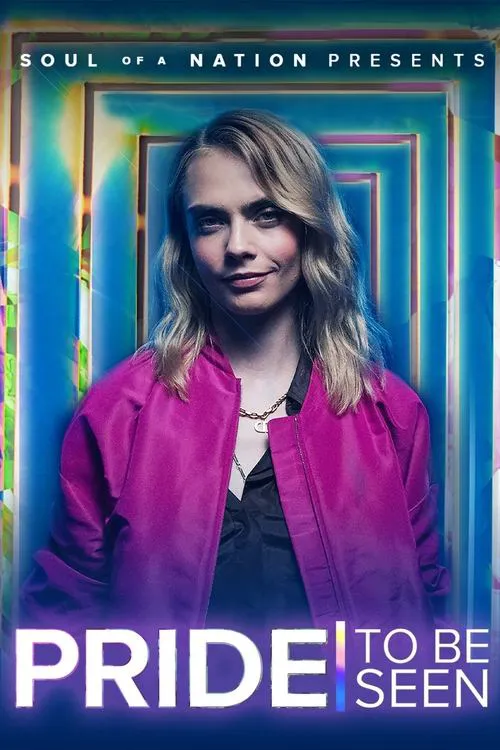PRIDE: To Be Seen - A Soul of a Nation Presentation

Handlung
In "PRIDE: To Be Seen – A Soul of a Nation Presentation," a film by Joshua Rofe, the cinematic canvas expands to highlight the indomitable spirit of the LGBTQ+ community. Through an array of compelling narratives, this documentary delves into the lives of queer individuals who, despite facing numerous obstacles, have not only persevered but continue to redefine what it means to be seen, to be heard, and to be part of a vibrant, resilient movement. The documentary kicks off by chronicling the life of Marsha P. Johnson, a trailblazing figure in the Stonewall uprising of 1969, often referred to as a catalyst for the modern LGBTQ+ rights movement. Johnson's unwavering advocacy for the rights of marginalized communities stands as a testament to the unrelenting drive for acceptance and equality. The film also touches on the life of Sylvia Rivera, a fellow Stonewall activist and trans woman, who fought tirelessly for the rights of all those who were struggling to be seen and heard. The narrative takes a poignant turn as it delves into the lives of the ball culture of the 1980s and 1990s. The film introduces viewers to the vibrant world of the House of Xtravaganza, a predominantly Latinx ball house, led by the enigmatic Willi Ninja. This underground community celebrated self-expression and creativity, providing a sanctuary for queer individuals who were struggling to find acceptance and belonging in a world that often sought to silence and marginalize them. One of the most heart-wrenching stories shared in the film is that of the life of Brandon Teena. Born Teena Brandon, he lived as a woman, but was eventually discovered by those around him, leading to a series of tragic events that ended in his brutal murder in 1993. Teena's story serves as a stark reminder of the violence and intolerance that continues to plague the lives of queer individuals, particularly those who identify as transgender. Throughout the documentary, the film's focus is not limited to the triumphs and struggles of individual queer icons but also explores the broader context in which they lived and struggled. The narrative touches on the AIDS epidemic of the 1980s and 1990s, which disproportionately affected the LGBTQ+ community, and the subsequent struggle for funding and attention to combat the disease. The documentary also delves into the lives of younger queer individuals who are carrying on the legacy of their predecessors. One such story is that of Desmond Is Amazing Isaac, a young performer and activist who has become a beacon of hope for many in the LGBTQ+ community. The film also introduces viewers to the work of the Trans Latina Coalition, a grassroots organization dedicated to advancing the rights and well-being of trans Latinas. What emerges from the mosaic of stories shared in "PRIDE: To Be Seen – A Soul of a Nation Presentation" is a testament to the power and resilience of the LGBTQ+ community. Despite experiencing periods of unspeakable pain and marginalization, this community has continued to forge its own path, redefining what it means to be seen and celebrated. Through the shared experiences and unwavering determination of queer individuals, the film underscores the indelible mark that this community has made on the social and cultural landscape. Ultimately, "PRIDE: To Be Seen – A Soul of a Nation Presentation" serves as a poignant reminder that the struggle for acceptance and equality is ongoing, but the fight for visibility and recognition is a testament to the unyielding spirit of the LGBTQ+ community. Despite centuries of marginalization and silence, this community continues to march to the beat of its own drum, defying the status quo and redefining what it means to be seen, heard, and celebrated.
Kritiken
Empfehlungen




